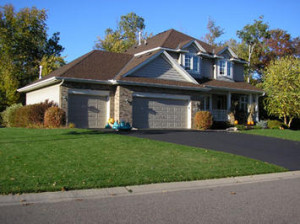January 26th, 2011 by
Admin
Categories:
Celebrity Real Estate,
condos,
design and decorate,
Do It Yourself,
exterior projects,
foreclosures,
Home Improvement,
homes for sale,
House Swap,
interior projects,
Mortgages,
Moving,
Moving Industry,
Packing,
Real Estate,
Relocation,
rentals Comments:
No Comments » 
Moving to the city or the country? Read our detailed list about the pros and cons of both.
Transitioning Between the City and the Suburbs?: Here’s What You Need to Know about Making the Move
By Faith Teel
Special to Relocation.com
As the old saying goes, “The grass is always greener on the other side.” Whether you’re headed out to the wide-open spaces of the suburbs or moving into the exciting neighborhoods of the big city, you might find that you’ve gotten more than you’ve bargained for. Here are just a few examples of the things they don’t tell you in the advertisements.
Moving to the Suburbs
Long Commutes and Distant Stores – Many people move to the suburbs in search of more space to raise a family or grow a garden. Unfortunately, there is a flip side to having more space: everything is farther apart. Your commute will probably be longer, and you’ll have to drive, because most suburbs are too spread out to make public transportation cost-effective. In some places, it’s common to have an hour-long commute in each direction, which may mean 10 hours that have disappeared from your week.
The lack of public transport also means that you’re more likely to encounter the greatest terror to ever stalk the streets: the teenage driver. In cities, teens can often walk or catch the bus to socialize, but some suburbs are so spread out that a jog to the local coffee shop would be a three-hour marathon. Suburban teens usually get cars long before they get good judgment about driving them.
A Cultural Vacuum – One of the first things that urbanites miss when they move to the suburbs is the variety that cities offer. Many suburbs are extremely homogenous, with cookie-cutter houses and cookie-cutter restaurants. Even the people often seem the same, because few suburbs are economically or ethnically diverse. Don’t bother to look for museums, and feel lucky if a few of the chain restaurants offer take-out or delivery.
Where Are All the People? – The very privacy that you came looking for can also be your downfall in the ‘burbs,’ because everyone around you moved out here for privacy as well. With everyone so spread out, it can take a long time to meet new people.
Crime is Everywhere – Yes, there is usually more crime in the city, but the suburbs are not exempt from it. There’s lots of petty theft in suburbs, and there are still gangs and drug use in the high schools. Your kids are less likely to get mugged, but that doesn’t mean you should leave your doors unlocked at night.
The Grating Outdoors– One of the biggest surprises for ex-urbanites is the proximity of Mother Nature in the suburbs. If you’ve never had to mow a lawn or check the kids for ticks, you’re in for quite an experience.
Moving to the City
No Space – The city is an exciting place to be and a great place to find work, which is probably why you want to be there. Unfortunately, everyone else wants to be there too, and that drives up the price of real estate. If you want to live in a reasonably safe neighborhood, be prepared to pay through the nose for a tiny apartment.
For the same reasons, city parking is often impossible. People often sell their cars when moving to the city, which means you will have to rely on public transportation such as buses and cars.
Other People – Other people are everywhere in the city, and that can take some getting used to. Traffic is often worse, but the real nuisance is the noise, smells and constant crowds.
Goodbye, Mother Nature – It can be hard to get in tune with nature in the city. The parks are often crowded with other people (see above) and some may not even be located within a close distance to your home. If you manage to score a balcony or small yard with your apartment, keep in mind that the pollution can be hard on plants and trees. It’s also tough to keep animals in the city, especially big dogs that need room to roam.
School Roulette – In the city, it’s easy to get to know other parents, and you’ll need this advantage when it comes to getting your kids into a good school. In the suburbs, getting into the right school is usually a matter of buying a house in the best neighborhood. In the city, finding the right school is a combination of luck and strategy, and every city’s rules are different. You won’t even have to raise this topic at your kids’ next playdate, because it will be the first thing on every parent’s mind.
Abrupt Changes in Neighborhoods – With everything in the city so packed together, it can be hard to tell at first glance which neighborhoods are safe and which aren’t. In some cities, the transition from slum to swank can happen in just one block. The transient nature of a community’s character becomes more obvious over time. One day, you could wake up to discover that your edgy, artistic neighborhood has become a slum or a yuppie’s paradise.
Whether you’re searching for greener grass in Levittown or the Big Apple, one thing is certain: you’re sure to need some time to adjust. Before you make the jump, take a little bit of extra time to explore the community that you’re moving to. No two cities are alike, and the same is true for suburbs, so if you don’t like what you see, look elsewhere. The quality of your life depends on it.